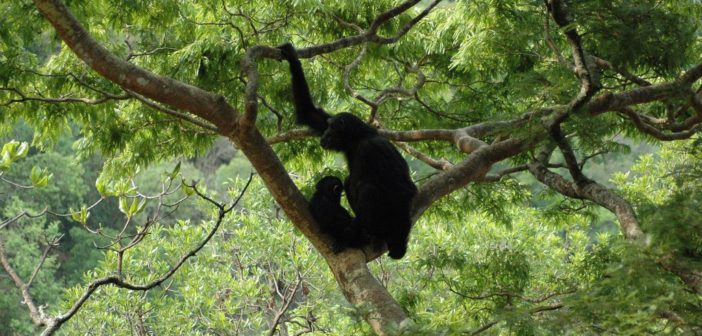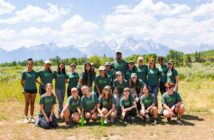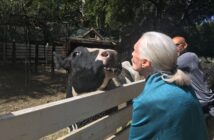How do you take decades worth of investment in community-centered conservation to the next level? With support and funding from the United States government through its Agency for International Development, the Jane Goodall Institute (JGI) is proud to announce the launch of the Landscape Conservation in Western Tanzania (LCWT) initiative, a five-year USD $20 million program! This program is about consolidation, deepening and expansion of the work JGI has been implementing in western Tanzania for more than 20 years. The impact of this initiative will be tremendous and will give our proven conservation strategies the fuel to accomplish so much for endangered chimpanzees, humans and habitats in the region.
Dr. Jane Goodall, founder of the Jane Goodall Institute and UN Messenger of Peace commented on the announcement saying, “I’m tremendously proud of the Jane Goodall Institute’s work in Tanzania over the past nearly 25 years and I am ecstatic about the news of our new initiative, which will make such a difference toward protecting wildlife, forests and livelihoods in the region.” Dr. Goodall continues, “This is truly some inspiring good news, which I’m sure will radiate outward in our overall efforts to partner with communities in the protection of wildlife.”
The Jane Goodall Institute, together with other organizational and government collaborators, will expand implementation of program activities from 74 villages to 104 villages in the Kigoma and Uvinza districts in Kigoma region, and Mpanda and Tanganyika districts in Katavi region. The initiative is designed to protect chimpanzee populations and their habitats, strengthen local government capacity in natural resource management, and empower local communities in the Gombe-Masito-Ugalla (GMU) ecosystem. The inclusion of new communities will be vital, as these individuals will play an important role in the future of conservation in the landscape.
Why JGI?
JGI’s roots in the GMU landscape go all the way back to 1960 when Dr. Jane Goodall began her now legendary study of chimpanzees in Gombe. There is no organization that understands the landscape better—at both a biological and sociological level. Our long-term approach in GMU, including permanent facilities, decades-long engagement and education programs, have proven our commitment to local communities and built the local trust essential for any successful conservation effort. Thousands of Tanzanians have grown up with JGI and know our work embodies Dr. Goodall’s personal philosophy that the survival of species and habitats depends upon the collaboration of all.
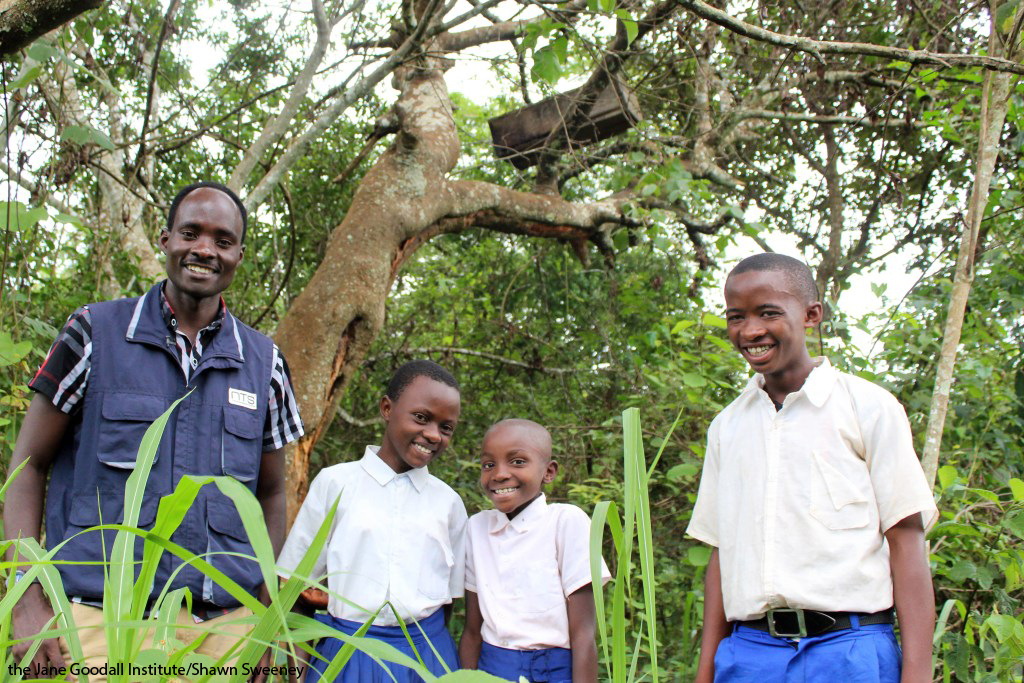
Roots & Shoots students in Tanzania showing a bee hive at their school
Why it matters
Western Tanzania, including the GMU ecosystem, contains over 90% of Tanzania’s estimated 2,200 chimpanzees, yet this population is facing increasing threats. Habitat loss and fragmentation from illegal logging, settlement expansion, overgrazing, and conversion of habitat for economic/agricultural purposes, are destroying the ecosystems upon which chimpanzees and thousands of other species depend. Chimpanzees are also directly at risk from nearby human communities through disease transmission and human-wildlife conflict. Underlying these threats, rapidly growing human populations are depleting natural resources and expanding upon unsustainable land use practices. These issues, paired with inadequate local government capacity to effectively manage natural resources, have limited conservation outcomes.
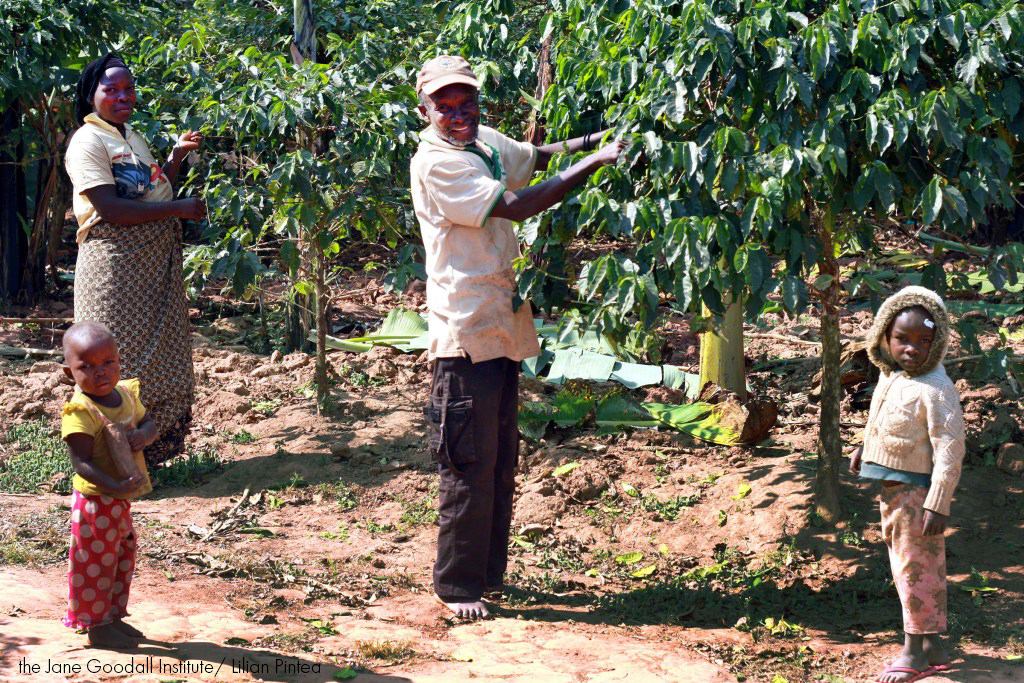
What will the LCWT do?
Guided by JGI-led Chimpanzee Conservation Action Plans at regional and national scales, the LCWT will take our holistic community-centered conservation to new heights. To mitigate threats to chimpanzees and ecosystems, JGI will support the capacity of local governments to increase effective natural resource management, and operationalize JGI’s well established and effective sustainable land use planning. These activities will be woven into work to expand sustainable livelihood development and to improve understanding and access to reproductive health and family planning resources. With this incredible initiative, we’ll also be able to grow monitoring for conservation and development targets, as well as to use cutting-edge science and tech to compile data into a Decision Support and Alert System enabling JGI to test, validate and adapt decisions guiding LCWT activities. And none of this will be happening in a vacuum or without thinking about the next generation. Building on our existing environmental education, we’ll increase the reach and efficacy of community-based environmental education by disseminating messaging through channels such as radio, TV and social media.

JGI health education program in Kalinzi Village
Dr. Carlos Drews, JGI’s executive director said of the LCWT, “Thanks to the support of USAID and the dedication of JGI staff and collaborators to design this remarkable initiative, we will be expanding upon our strategy and successes in exciting new ways. He continues, “Collaboration with local people and governments has always been core to our work, and now with this plan to include even more communities, I can only imagine how far we’ll be able to advance the protection of chimpanzees and their habitats.”
Read more about our work at janegoodall.org/tanzania

The Jane Goodall Institute is a global community conservation organization that advances the vision and work of Dr. Jane Goodall. By protecting chimpanzees and inspiring people to conserve the natural world we all share, we improve the lives of people, animals and the environment. Everything is connected—everyone can make a difference.


